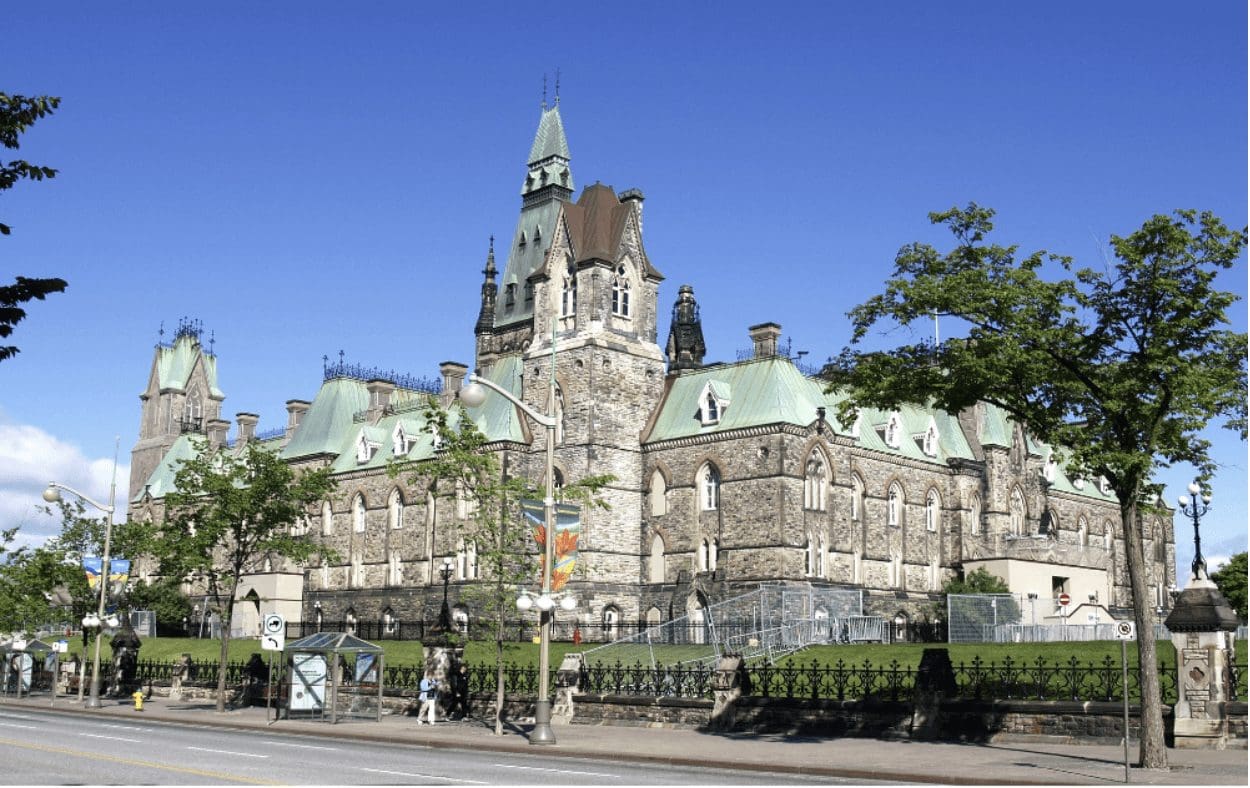Welcome to your guide on navigating the different types of mortgages in Ottawa. Buying a home can be a thrilling experience, but it also comes with complexities. Chief among these is the mortgage. It’s a long-term loan to help you finance your home. Yet, it’s much more than a simple loan.
Understanding the nuances of different mortgage types is crucial. You’re not just buying a home; you’re also selecting a financial tool that will be a part of your life for years. The right choice can provide stability, savings, and security; the wrong one could lead to financial strain.
In this journey, we’ll explore various mortgage types available to you as an Ottawa resident. From a fixed interest rate to adjustable, government-backed to those for exceptional circumstances, we aim to help you make an informed decision.
Here, we break down the complex world of mortgages into digestible chunks, giving you the knowledge to navigate your home purchase confidently.
Understanding Mortgages: A Basic Guide
What is a Mortgage?
Let’s start with the basics. A mortgage is a loan to purchase or maintain a home or other real estate. It’s a financial agreement between a borrower and a lender, typically a bank or a credit union. You can also have an agreement with private mortgage lenders. The property serves as collateral, providing security for the lender.
How Do Mortgages Work?
Mortgages are more complex than typical loans. They have three main components: the principal, interest, and term.

Principal: This is the actual amount you borrow to buy your home. If you purchase a $500,000 house and put down $100,000, your principal is $400,000.
Interest: This is the cost of borrowing money, expressed as a percentage of the loan, and it’s how lenders profit.
Term: This is the length of time you have to repay the loan. In Canada, mortgage terms can range from 6 months to 10 years, with five years being the most common. You can renew your mortgage at the end of the term, possibly with a different rate or terms.
The Importance of Mortgages in the Home Buying Process
In the home buying process, a mortgage is a vital component. Very few people can afford to pay for a home outright, and it is where mortgages come in, allowing ordinary individuals to become homeowners.
However, choosing a mortgage is not just about securing the funds to buy a house. It’s about finding the right financial arrangement that suits your long-term goals and current financial situation.
The right mortgage can create a comfortable financial situation where homeownership is a joy, not a burden. Understanding different types of mortgages enables you to make an informed choice, one that ensures your dream home doesn’t turn into a financial nightmare. So, let’s continue this journey and delve into the common types of mortgages.
Common Types of Mortgages
Fixed-Rate Mortgage
A fixed-rate mortgage is a type of mortgage that is the most straightforward. The interest rate remains unchanged throughout the term, so your mortgage payment won’t change.

You have the security of knowing what your payment will be each month, making budgeting easier in fixed-rate mortgages.
It is close to a traditional mortgage as we know it, where a mortgage lender or mortgage insurance gets paid a fixed amount for a certain period. It is also known as a fixed-rate closed mortgage and is not different from fixed-rate loans, where you have the same monthly payment.
However, the downside to this predictability is that you’re stuck with your initially agreed rate if interest rates fall. Yet, fixed-rate mortgages could fit those who value stability and predictability.
Adjustable-Rate Mortgages (ARMs)
On the other hand, Adjustable-Rate Mortgages have rates that change over time. The rate adjusts based on a pre-determined financial index, such as the Bank of Canada’s key interest rate. It could mean lower payments if the interest rate fall. But, it could also mean higher payments if the interest rate rises.
A variable interest rate is the main feature of this type of mortgage. Variable-rate mortgages offer less stability than fixed-rate mortgages but allow for better flexibility. The monthly mortgage payment and overall mortgage balance may change over time.
The uncertainty of ARMs can be harmful. Yet, the potential for lower payments can be appealing, especially to those planning to move before rates increase significantly.
Hybrid Mortgages
Hybrid mortgages are a mix of the previous two. They start with a fixed rate for a specific period, then convert to an adjustable rate. It might be a good option for those who expect their financial situation to change.

It offers the stability of a fixed rate initially, then the flexibility of an adjustable rate later.
However, there’s a risk of rates rising when the adjustable period starts. And typically, the initial fixed rate of a hybrid mortgage is higher than the rate on a fully fixed-rate mortgage.
It is a convertible mortgage and gives you the option for both open mortgages and closed mortgages. Open mortgages allow for assumable mortgages or refinance mortgage, which could be viable if you want to take advantage of lower interest rates for the remaining mortgage payments.
Understanding these common mortgage types is the first step to making an informed decision. The right choice depends on your circumstances, market conditions, and personal comfort with risk.
Government-backed Mortgages in Canada
Canadian Mortgage and Housing Corporation-Insured Mortgages
Canadian Mortgage and Housing Corporation (CMHC) is essential in Canada’s mortgage landscape. It offers mortgage loan insurance, which is mandatory for down payments of less than 20% in Canada.
CMHC-insured mortgages allow you to qualify for a loan with as little as 5% down. The insurance protects lenders against mortgage default, making low down payment loans less risky. However, as the borrower, you pay the cost of the insurance.
While this option increases accessibility to homeownership, it does come at an extra cost. The insurance premium is a percentage of the loan and can be significant.
Other Government-Related Mortgage Options
There are also other government-related mortgage options, and the First-Time Home Buyer Incentive is one of them.

This program, launched by the federal government, offers 5-10% of the home’s purchase price as a shared equity mortgage, and it could lower monthly mortgage payments.
Another program is the Home Buyers’ Plan. It allows you to withdraw up to $35,000 from your RRSP to buy or build a qualifying home.
While these programs can provide significant assistance, they have conditions and restrictions. Eligibility often depends on factors like income level and the price of the home.
Navigating government-backed mortgage options can be complicated, and understanding the details and how they fit into your financial picture is crucial. Seeking advice from a mortgage professional can be beneficial to understand these options fully and to make the best choice for your situation.
Mortgage Options for Special Circumstances
Home Equity Lines of Credit
A Home Equity Line of Credit (HELOC) allows a credit line relative to the equity in your home. It’s a flexible option as you can use the funds as needed, repaying them over time. It could be a viable option for homeowners seeking to fund renovations or consolidate high-interest debt. Remember, though, that your home is the collateral.
Reverse Mortgages for Senior Citizens
A reverse mortgage is an option for senior citizens aged 55 and older. It allows homeowners to convert a part of their home equity into cash without selling their home. The loan gets repaid when the homeowner sells the house, moves out permanently, or passes away. It provides income but reduces home equity.

High-Ratio Mortgages and Low Down Payment Options
High-ratio mortgages are for those with a down payment of less than 20% of the home’s purchase price. These loans must be insured, which adds to the cost but enables homeownership with a smaller upfront investment.
Every situation is unique, and so are the mortgage needs. The right mortgage option should fit your financial situation and plans. Exploring these unique options can help you find a solution that aligns with your needs.
Mortgage Considerations in Ottawa
Impact of Ottawa’s Housing Market on Mortgage Choices
Ottawa’s vibrant housing market can influence your mortgage choice. In a highly competitive market, having pre-approved mortgage financing can give you an advantage. Additionally, if property values are rising, a shorter-term mortgage could allow you to take advantage of potentially lower rates when you renew.
Typical Mortgage Rates in Ottawa
Interest rates can vary across different cities, and Ottawa is no exception. Understanding the typical rates in Ottawa when negotiating your mortgage terms is essential. Remember, even a fraction of a percentage point can make a significant difference over the life of your mortgage.
How Ottawa’s Real Estate Laws Affect Mortgages
Like all of Canada, Ottawa has strict regulations regarding real estate transactions, which extend to mortgages. Lenders must follow stringent rules when issuing mortgages, and borrowers have specific protections. Knowledge of these laws can help protect your rights as a homeowner.
In conclusion, securing a mortgage in Ottawa requires understanding the local market dynamics, interest rates, and laws. Always do your homework or seek professional advice before committing to a mortgage.

It’s about more than just a home; it’s about financial stability and peace of mind.
Factors to Consider When Choosing a Mortgage
Interest Rates
Interest rates are a crucial factor, and a lower rate means less cost over the life of the mortgage. Whether to choose a fixed or adjustable rate depends on the current market conditions and your risk tolerance.
Term Length
The term length is another vital factor. A longer-term provides stability but might come with a higher rate. A shorter term can offer lower rates, but you risk higher rates when renewing.
Down Payment Size
Your down payment size can significantly influence your mortgage options. A larger down payment can reduce your monthly payments and overall interest costs and help you avoid the extra cost of mortgage default insurance.
Personal Financial Situation and Goals
Lastly, consider your financial situation and goals. If you plan to move in a few years, an open mortgage or shorter term might be better, and a fixed-rate mortgage could be preferable if you need predictability in your budget.
Choosing a mortgage is a significant decision with long-term implications. Consider these factors carefully to select the best mortgage for your situation. Remember, getting professional advice can make the process easier and more manageable.
Final Thoughts: Choosing the Right Mortgage for Your Ottawa Home Purchase
Choosing the right mortgage type is crucial to successful homeownership. From fixed to adjustable rates, from government-backed options to exceptional circumstances provisions, the right choice depends on your circumstances. Consider factors like interest rates, term length, and down payment size.

Keep in mind the specifics of the Ottawa housing market. Navigate the options by doing your homework and consider consulting with a mortgage professional for personalized advice.
Remember, purchasing a home is about becoming a property owner and investing in your future. The right mortgage choice fits your current circumstances and aligns with your long-term financial goals. Make a decision that offers you comfort, stability, and growth.



